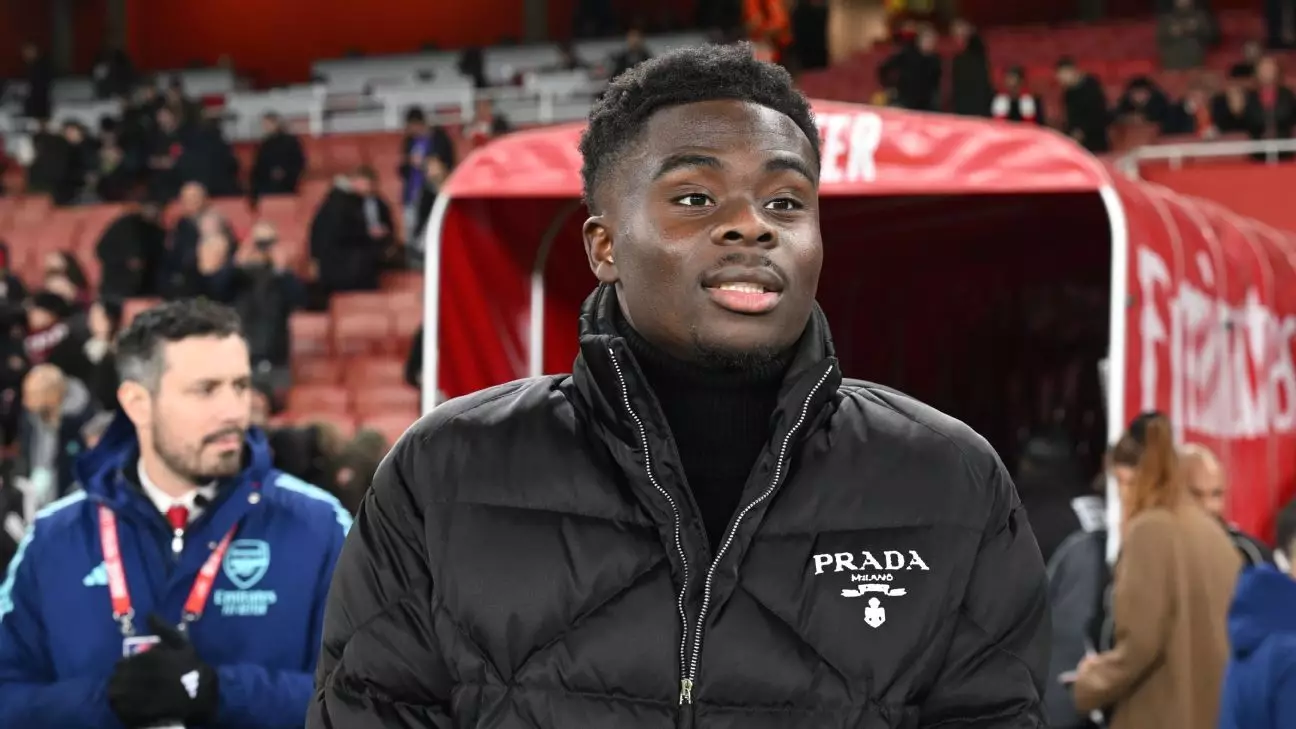In the high-stakes world of professional football, managing player health and wellness has become increasingly paramount. Arsenal’s manager, Mikel Arteta, has recently emphasized the importance of mental and physical recovery, particularly in light of significant injuries facing key players. Bukayo Saka’s recent hamstring injury serves as a focal point for this discussion, which underscores the necessity of informed decisions regarding player time off during rehabilitation.
Arteta’s insistence that Saka should take time to “refresh” following his surgery highlights a progressive attitude toward player management. Rather than viewing rest as a weakness, Arteta recognizes it as a vital component of recovery. This reflects a broader shift in sports culture, where the mental well-being of athletes is gaining recognition as essential for their long-term performance and health. The Arsenal manager’s directive for Saka to spend time away with loved ones indicates an understanding of the psychological aspects of recuperation, promoting a holistic approach to player care.
The Impact of Injuries on Team Dynamics
Saka’s absence from the squad has undoubtedly had a tangible impact on Arsenal’s recent performances. The team’s struggle in the FA Cup and the significant deficit in the Carabao Cup semifinal against Newcastle United underline the difficulties of navigating competitive fixtures without key players. This situation prompts a critical examination of how injuries can disrupt not just individual performance but also team cohesion and strategic execution.
Arteta’s acknowledgment of the necessity for squad rotation and the importance of player depth in a competitive league cannot be overstated. With several players sidelined due to injuries, including notable absences like Gabriel Jesus and defensive stalwarts such as Takehiro Tomiyasu and Ben White, the Arsenal team has faced mounting challenges. These setbacks not only test the tactical flexibility of a manager but also place increased pressure on remaining squad members, potentially leading to burnout.
The Importance of Rehabilitation and Recovery
Rehabilitation is not merely a phase of recovery; it is a critical factor in an athlete’s return to peak performance. As Arteta pointed out, Saka is at a pivotal point in his recovery where rehabilitation can be effectively integrated with necessary mental breaks. The importance of a balanced recovery plan that includes both physical rehabilitation and psychological refreshment can significantly enhance an athlete’s resilience and readiness for competitive play.
Arteta’s call for Saka to engage in leisurely activities during his rehabilitation phases suggests a recognition that time spent away from football can foster a healthier mindset. This perspective aligns with growing research indicating that players who take adequate time to mentally recover are less prone to re-injury and can return to their sport rejuvenated.
The discussion surrounding Bukayo Saka’s recovery underscores the broader themes of player wellness in football. Mikel Arteta’s empathetic approach illustrates not just a commitment to an individual athlete but also an evolving philosophy regarding player management in professional sports, where mental resilience is as crucial as physical conditioning. Thus, while injuries are an unfortunate reality in football, how teams manage these challenges can ultimately define their success on the pitch.

Leave a Reply